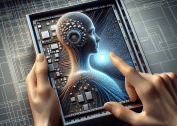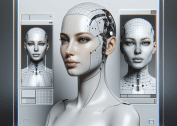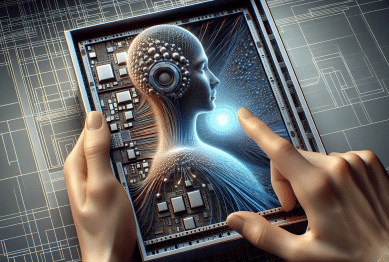Quantum computing is reshaping what’s possible in science and technology. This guide explores how quantum computers work, the myths, the mind-boggling science behind them, and real-world uses that might surprise you. Dive in to discover how innovations in quantum computing could impact your digital life.
Understanding the Basics of Quantum Computing
Quantum computing sounds mysterious, but its foundation lies in the rules of quantum physics. At the heart of this field are quantum bits, or qubits. Unlike traditional computer bits, which can be either 0 or 1, qubits can exist in multiple states simultaneously due to a property called superposition. This enables a quantum computer to process vast amounts of information in parallel, offering unprecedented power for certain problems (Source: IBM).
The potential for computational speedups has captured the attention of researchers and industry leaders. Problems that would take traditional computers centuries to solve might be cracked far more quickly with quantum algorithms. However, achieving reliable qubit operation is challenging, as quantum states are sensitive to outside disturbances—a hurdle known as decoherence. Many scientists are exploring error correction and ways to stabilize qubits, making the dream of reliable quantum machines a realistic goal.
Emerging companies and research labs are racing to develop quantum processors that can be scaled up to solve complex, practical tasks. Their work often involves advances in cryogenics, materials science, and electrical engineering. As a result, quantum computing is not just a physics curiosity—it is a rapidly evolving technology that could underpin future breakthroughs in artificial intelligence, chemistry, and encryption. The field continues to evolve, and the journey from lab to mainstream is full of fascinating challenges and milestones (Source: Nature).
Major Differences Between Classical and Quantum Computers
One striking difference between classical and quantum computers is how information is represented and manipulated. Classical computers use binary digits (bits), where computations are sequences of operations on 0s and 1s. Quantum computers use qubits, which utilize quantum entanglement and superposition for parallel computation. This parallelism allows certain calculations to happen much faster, such as factoring large numbers or simulating molecular behavior (Source: Quantum Country).
In practical terms, a single qubit doesn’t just represent one value; its quantum nature allows it to participate in a superposition of both 0 and 1 at once. When multiple qubits are entangled, their states become linked—a change to one instantly affects the others, no matter the distance. This quantum link is what empowers computers to explore many possibilities at the same time, offering a kind of computational agility that’s not possible with conventional devices.
Still, quantum computers are not superior for every problem. Many everyday tasks remain better suited to classical architectures. Yet, for fields like cryptography, data search, and quantum simulations, the game changes. As researchers improve the algorithms that make use of quantum properties, more sectors will likely feel the ripple effects across tech and science domains.
Real-World Applications Already Emerging
Quantum computing influences more than just academic theory. Already, tech giants and startups are collaborating on quantum-enhanced algorithms for drug discovery, logistics optimization, and secure communication. By encoding data in qubits, scientists can simulate molecules and materials much faster than before, opening doors for breakthroughs in medicine and chemistry (Source: Scientific American).
In cybersecurity, quantum computers present a double-edged sword. On one hand, existing encryption systems like RSA may become vulnerable when quantum computers reach sufficient size. On the other, new forms of quantum encryption—like quantum key distribution—promise levels of security never before achievable. These shifts are driving dramatic changes in how institutions and businesses secure sensitive information.
Manufacturing and supply chain management are also set to benefit as quantum algorithms tackle complex optimization problems. Early pilots suggest that traffic routing, energy grid balancing, and even financial modeling may become more efficient. The landscape is evolving, and industries that require predictive analytics and decision optimization could soon start leveraging quantum technologies for strategic advantages.
Quantum Myths, Challenges, and Realities
Quantum computing’s popularity brings along several common myths. Some believe quantum computers will soon replace classical ones entirely. In reality, both models will likely coexist for decades, with quantum computers specializing in niche, high-complexity tasks. Another myth is that quantum supremacy—achieving calculations beyond classical reach—means practical applications are ready now. In truth, most quantum computers are still experimental, and commercial-grade reliability is a road ahead (Source: NIST).
One of the critical challenges is scaling up the number of qubits while keeping error rates low. Quantum error correction, gate fidelity, and environmental isolation are all research priorities. Efforts include using superconducting circuits, trapped ions, and even photonic systems. Maintaining quantum coherence for long enough to perform usefully large computations remains a technical obstacle, but progress moves steadily forward.
Funding, skill gaps, and infrastructure demands further shape how fast quantum technology rolls out. New academic programs and collaborative ventures between academia and industry continue to grow. As the sector matures, it is crucial to maintain clear communication about what is achievable today and what still belongs to the frontier of tomorrow. The balance of excitement and realism helps drive responsible innovation—and helps avoid disillusionment when progress, as in all science, takes time.
The Future of Quantum Computing and Society
Pundits and technologists often speculate how quantum computing could transform society. One area is artificial intelligence, where quantum algorithms might one day train machine learning models on scales currently unimaginable. Additionally, scientific fields like climate modeling and genomics may benefit from rapid simulations and analysis. Quantum computing could accelerate discoveries, helping address complex societal issues (Source: Nature).
The digital economy is another space likely to change. Quantum internet concepts—using entanglement for ultra-secure communication—could establish new, trustless transaction systems. As technology matures, new roles, new ethical questions, and new policy discussions will arise. Organizations and governments are already drafting strategic plans to ensure responsible adoption and to safeguard privacy and data security in a world where today’s encryption might become obsolete.
Education and workforce development matter more now than ever. With the pace of change, fostering a quantum-literate generation will give tomorrow’s thinkers the tools to harness new opportunities. Collaborative innovation—across science, business, and policy—will shape how quantum computing’s full potential is realized. One thing is certain: As quantum technology matures, it will spark deep changes in how society solves problems and imagines new possibilities.
Resources and Learning Paths in Quantum Computing
Curiosity about quantum computing is rising. Many top universities and organizations now offer introductory courses online for free. For instance, platforms such as edX and Coursera partner with leading institutions to provide structured learning in quantum theory, algorithm development, and hardware fundamentals (Source: edX). These resources are structured to welcome beginners, with options to dive progressively deeper.
Researchers and enthusiasts can also access open-source simulators and cloud-based quantum computers. Companies like IBM and Google provide limited, hands-on access to their quantum machines, inviting the public to experiment and innovate. Many research institutions release study guides, publications, and programming toolkits, making it easier for learners at all stages to become quantum fluent.
Quantum computing remains a collaborative field by nature. Anyone can join online communities, attend web seminars, and contribute to open research questions. As the technology grows, so too will the ecosystem of freely available knowledge. Whether for career advancement, intellectual curiosity, or strategic planning, resources abound for those eager to be part of the next great leap in technology.
References
1. IBM. (n.d.). What is Quantum Computing? Retrieved from https://www.ibm.com/quantum-computing/learn/what-is-quantum-computing/
2. Gibney, E. (2021). Why quantum computers are so hard to build. Retrieved from https://www.nature.com/articles/d41586-021-02341-0
3. Quantum Country. (n.d.). Classical vs Quantum Computing. Retrieved from https://quantum.country/qcvc
4. Scientific American. (2019). Harnessing the Power of Quantum Computing for Drug Discovery. Retrieved from https://www.scientificamerican.com/article/harnessing-the-power-of-quantum-computing-for-drug-discovery/
5. National Institute of Standards and Technology. (n.d.). Cybersecurity Framework Overview. Retrieved from https://www.nist.gov/itl/applied-cybersecurity/privacy-engineering/cybersecurity-framework/overview
6. edX. (n.d.). Learn Quantum Computing. Retrieved from https://www.edx.org/learn/quantum-computing










 You Can Boost Focus with Mindful Habits
You Can Boost Focus with Mindful Habits 

